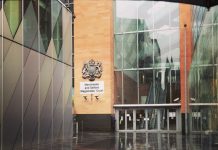Successive governments have failed to deliver an education system that offers better opportunities for all children and young people, according to a new report written by four academics from The University of Manchester.
They are urging the major parties to create an education system that is based on what works and have outlined a new way of thinking around how this can be achieved.
Professor Ainscow said: “After nearly three decades of relentless reform, the education system finds itself becalmed in terms of overall improvement and stranded in mid-table in terms of international comparisons.”
The report says student achievement is too strongly linked to social background and gaps in achievement between those who do well and those who do badly are large and growing.
According to Professor Dyson, the country’s education policies have become simplistic mantras about what works and what needs to be done. He said: “It is naïve to think that high-quality education can overcome whatever disadvantaging factors may lie in learners’ backgrounds, the reality is different.
“Students will not do well without good teachers and good schools. But neither will they do well if they and their families struggle against poverty or discrimination, if families do not know how best to support their children’s learning, if their communities are not safe, or if they have health problems.”
The report recommends that education policy has to be part of much wider efforts to improve the lives of individuals and families and that schools have to be part of a much wider network of services.
Policy is also responsible for failing to make schools accountable for the overall well-being, skills and knowledge of its students, according to the report. Instead it is focussed on ‘following centrally-determined procedures and getting their students through tests and examinations’.
Professor Ainscow commented: “If necessary, schools do this by gaming the system, while policy makers play catch-up, outlawing ‘easy’ examinations, devising new forms of league table, and seeking arbitrary ways of ‘raising the bar’.
At the same time, the report says Ofsted has become more and more powerful, sometimes seeming to be the Secretary of State’s attack dog, and sometimes seeking to establish its own, independent power base.
“Educational change should build on the best of what is already happening in the field, rather than engaging in yet another wholesale system reform,” concluded Professor Dyson. “There is’, he argues, “more wisdom within the education system than amongst those who have sought to lead it.”







